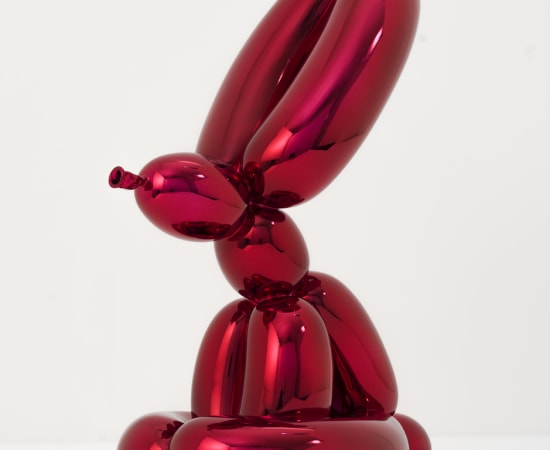Jeff Koons
Jeff Koons (born 1955) playfully tests the boundaries of commerce, celebrity, banality and pleasure. He rose to prominence in the mid-1980s as part of a generation of artists who explored the meaning of art in a media-saturated era. Koons turns banal commercial or everyday objects into art icons by using seductive materials, a shift of scale and a contextual displacement. Jeff Koons’s “Balloon Dog” (featuring his enormous iconic chromium stainless steel dogs); his large-scale vinyl “Inflatables”; or the giant “Split Rocker” all follow this principle. For instance, Jeff Koons in “Puppy” engaged the past and the present, referencing the eighteenth-century formal garden, while adding the most sugary of iconography.
Originally licensed as a commodities broker, Koons decided to become an artist in the late 1970s and moved from Wall Street into a factory-like studio in SoHo with hundreds of assistants. Since then, he has produced different iconic series, like the “Pre-New”, a series of domestic objects in strange new configurations, and “The Equilibrium” series, consisting of basketballs floating in distilled water tanks. The “Banality” series, which includes Jeff Koons´s “Michael Jackson and Bubbles” and “Woman in Tub”, among others, is characterised by oddly eroticised, comic and kitsch images. However, it is indeed Koons’s “Made in Heaven” series that is his most provocative and controversial work, in which he examines the place of sexuality in visual culture. Koons is widely regarded as one of the most important, influential and controversial contemporary artists. He constantly tests the boundaries between art and commerce, high culture and mass culture, ready-made and art object, by decontextualising his objects and lifting them to iconic status. Jeff Koons´s art is the result of his intention to bring it out of the enclave of the genius-driven artist into the realms of contemporary pop and commerce-driven culture.








